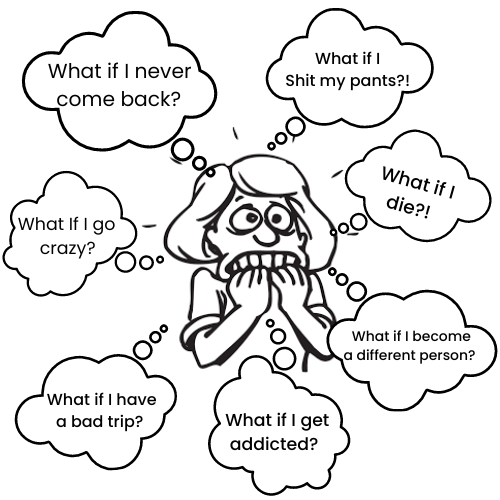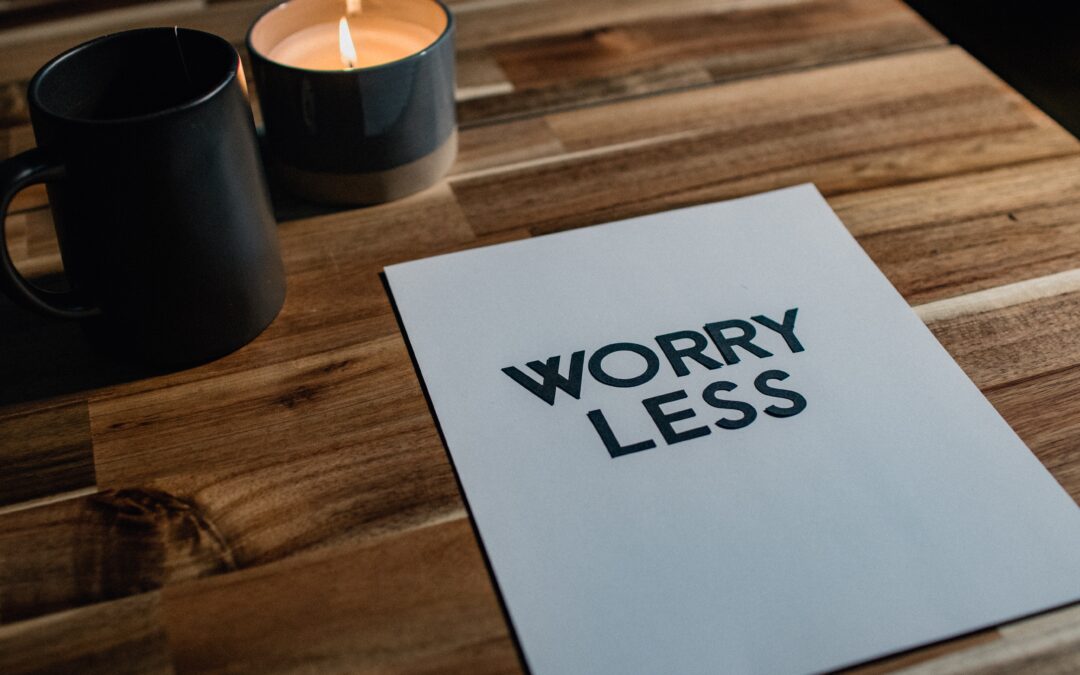If you find yourself worrying about future situations and are constantly thinking “but what if” then you’re probably familiar with my friend “Whatiffa”.
Whatiffa is a part of me that constantly goes down a rabbit holes of catastrophic thinking and worst case scenarios leaving me stressed out and anxious.
She usually makes a guest appearance right before a psychedelic journey and haunts me with all kinds of horrifying possibilities.

Do you have an inner Whatiffa?
Whatiffa likes to keep busy, and her many jobs include:
- Keeping you awake at night
- Writing horror stories & worst-case scenarios
- Creating unwelcome and intrusive thoughts
- Sabotaging plans & adventures
- Creating anxiety and tension in your body
Sound Familiar?
Despite being a bit of a tyrant, Whatiffa genuinely has your best interests at heart. By understanding her need for certainty we can begin to recognise her safety mechanisms and teach her that everything will be OK.
If left unchecked, ‘what if’ thinking can become intrusive and begin to disrupt your life and functioning. The best way to spot Whatiffa is by catching any thoughts that start in ‘what if’. These thoughts are usually coming from a place of fear and aren’t based entirely in reality.
Why do ‘what if’ thoughts take over?
This is a combination of our natural human survival drive, traumatic events and habit. Our brains are wired for survival and even thought we’re no longer hunting for food or building houses out of leaves and sticks, our brains haven’t quite caught up with our 21st century way of living. Instead of escaping danger, we worry instead about money, relationships, illness and our loved ones. This part of the brain is simply trying to do its job, which is to keep us safe.
There has probably been a time in your life where something unexpected and possibly traumatic happened to you. The ‘what if’ thinking developed as a protective mechanism to try and stop that from ever happening again. It goes into overdrive and is constantly scanning the environment looking for potential threats. We begin to create worst case scenarios, and project them onto future situations because we think it will make us prepared to face challenges. The truth is this very rarely works because most of challenges are unpredictable so there’s no way we can prepare for them.
How can we help Whatiffa?
There are many strategies and practices that can help with ‘what if’ thinking & here are my top 3!
1. Evidence
Whatiffa loves evidence, so offer up statistics, past experiences and facts to calm her down. This could be a time in the past where you’ve overcome something difficult or thrived in the face on uncertainty. Grab your journal and make a list!
2. Awareness
Just spotting these ‘what ifs’ can be enough to shift your perspective over time. Instead of automatically going into a fear response you can learn to questions the thoughts and gain some perspective. You can try having a phrase you say to yourself to interrupt the pattern of ‘what if’ thinking. Mine is “Hi Whatiffa!”
3. Flip the ‘what if’
What if it goes well? What if I have a great time? What if everything turns out OK? It’s important to bring balance to these polarised thoughts, because in reality life is a mixture of good moments as well as more challenging ones. Nothing is black and white, including those ‘what ifs’ !

